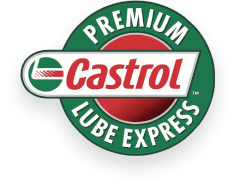Fuel Injectors
If you smell gasoline in your vehicle, pay attention to your nose. That's because it has an important message for you.
Newer vehicles should never have a gasoline smell inside. One of the most dangerous conditions can come when your fuel line system has a leak or multiple leaks. Vehicles with fuel injectors are under pressure, meaning a crack or small hole in a fuel line can allow vaporized fuel to escape, sometimes around hot engine parts. Gasoline vapor and hot metal? You see the problem.
One of the most common causes of a gasoline smell inside a vehicle is a fuel tank leak. The gas tank can rot or be punctured by road debris. A Riverton Tunex technician can evaluate the condition of your fuel tank and suggest either repair or replacement.
Fuel injectors can develop small leaks around their seals or O-rings. Those can deteriorate over time as the material they are made of gets old and less flexible. A technician can replace those parts.
Modern vehicles contain something called a charcoal canister. It gathers evaporating gasoline vapors from inside your fuel tank and prevents them from venting out to the atmosphere. If that canister has a leak, you'll smell it. One hint that you have a problem is the Check Engine light may come on.
You may have a leak in your fuel tank vent hose. Or you may be smelling gasoline simply because your gas cap is loose, the cap is faulty or—yes this does happen—your gas cap is missing altogether.
Consider the dangers of gasoline fumes seriously. Inhaling them can be bad for your health or they may start a fire. Don't fool with fuel; have gasoline odors checked out right away.
Riverton Tunex
3901 W Innovation Dr
Riverton, Utah 84065
801-446-4465
http://www.rivertontunex.com



